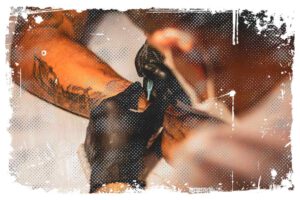If you’re unsure about the legal drinking age in Poland, it’s important to make sure you’re up to date on the regulations. In Poland, individuals under the age of 18 are prohibited from consuming alcohol and it’s also illegal to sell alcohol to minors. It’s worth noting that underage youth are not able to purchase alcohol, not just in a shop, but also in a bar or pub.

Despite the strict prohibition against underage drinking, some teenagers still consume alcohol, which can be quite risky for their health and wellbeing. It’s also worth noting that in other countries such as the USA, Iceland, and Lithuania, the restrictions around alcohol consumption are even stricter, with the legal drinking age set at 21 in some cases, meaning that even beer and wine are off-limits until then.
Make sure you also check the article about alcohol limits in Poland. You will learn from it if you can, or cannot drive after having a beer.
Drinking Age in Poland in Comparison with Other European Countries
According to Polish law, alcohol can only be purchased by persons over the age of 18. In Austria, you can purchase beer, wine, and cider at the age of 16, while stronger alcohols are restricted to also those over 18. In Belgium, you can buy certain alcohols such as wine below 22% alcohol content or beer from the age of 16, but other alcohols are only available from 18.
Cyprus, Denmark
In Cyprus, any alcohol can be purchased from the age of 17, and in Denmark, lighter spirits below 16.5% can be sold to 16-year-olds, while stronger alcohols are only available to those over 18. Interestingly, there are no laws prohibiting the consumption of alcohol under 16 or 18 years of age in these contries.
Germany
In Germany, the rules are slightly different. If accompanied by an adult, you can purchase beer, wine, or cider from the age of 14, and from 16 you can buy them without adult supervision. The legal age for purchasing stronger alcohols is 18.
In Liechtenstein, you can purchase non-spirit-based alcoholic drinks from the age of 16, but you have to be 18 to buy stronger alcohols. In Luxembourg, alcohol can be purchased from the age of 16, and in Malta from the age of 17. In San Marino, the legal age for purchasing alcohol is 16.
Switzerland
Switzerland’s laws are a bit more complicated, but generally, drinks with up to 15% alcohol and natural wines up to 18% can be purchased by those over 16 years of age. For other alcohols, the legal age is 18, with the exception of the canton of Ticino, where all alcohols are sold from the age of 18. In order for everything to be more understandable, I created this table:
| Country | Beer/Wine/Cider | Stronger Alcohols |
|---|---|---|
| Poland | 18 | 18 |
| Austria | 16 | 18 |
| Belgium | 16 (wines <22%) | 18 |
| Cyprus | 17 | 17 |
| Denmark | 16.5 | 18 |
| Germany | 14 (with adult) | 18 |
| Liechtenstein | 16 | 18 |
| Luxembourg | 16 | 16 |
| Malta | 17 | 17 |
| San Marino | 16 | 16 |
| Switzerland | 16 (15% max) | 18 |
| Ticino | 18 | 18 |
Countries Where Alcohol is Sold From The Age of 18
If you are planning a trip to one of these countries, the regulations are the same here as in Poland. From the age of 18, you can buy alcohol in countries such as:
- Albania, Andorra, Armenia, Belarus, Bosnia and Herzegovina, Bulgaria, Croatia, Czech Republic, Estonia, France, Georgia, Gibraltar, Greece, Hungary, Ireland, Italy, Latvia, Moldova, Montenegro, Netherlands, Macedonia, Portugal, Romania, Russia, Serbia, Slovakia, Slovenia, Spain, Turkey, Ukraine, United Kingdom.
Countries With Drinking Age Over 18
I’ve had the experience of traveling around Europe and I was surprised to see that there are countries where drinking alcohol is not allowed at the age of 18. Sounds weird for me, but in some places you can’t even enjoy a glass of wine in a cafe if you’re 18.
One of the most restrictive countries I’ve been to is Lithuania. They have some of the most ridiculous laws because you can’t buy or drink alcohol until you’re 20. Another country with strict regulations is Finland. If you want to buy alcohol with more than 22% you have to be at least 20 years old.
I also found out that in Iceland you can consume alcohol without limits, but you can only buy it at the age of 20. However, if you’re caught providing access to someone under the age of 20, you can be charged with a crime.
In Norway, you can’t buy whiskey or any alcohol over 22% until you’re 20. Meanwhile, Sweden allows you to buy alcohol at 18 in bars, but for general sales you have to be 20 and buy it from specially designated stores controlled by the government, reminiscent of the communist era.

Overview of Drinking Culture in Poland
As someone who has been keeping track of alcohol consumption in Poland, the outbreak of the coronavirus pandemic has greatly impacted the market. This effect is not only limited to our country, but it has also caused changes in preferences for the type and amount of alcohol consumed worldwide. While it’s too early to provide a detailed summary of these changes, data from statistics indicate that a shift is occurring.
WHO Statistics
The World Health Organization regularly publishes comprehensive reports on the impact of alcohol consumption on global health. In the latest report, which covered 2010-2016, some interesting data was revealed about Poland. The report indicates that the consumption of pure alcohol per capita among those over 15 years of age in Poland was 11.6 liters in 2016, which is an increase of 0.2 liters from 2010. In addition, the consumption of unregistered alcohol, mainly high-proof drinks, also increased from 1.5 to 1.7 liters per capita during this time.
We Primarily Consume Beer
Beer is the most preferred drink in Poland with 55-56% of total consumption, followed by spirits at 36% and wine at 8-9%. However, it is also interesting to note that the percentage of abstainers has significantly reduced from 27.3% in 2010 to 13.5% in 2016. Also, the number of people addicted to alcohol has decreased from 4.4% to 2.2%, and the number of potential years lost due to alcohol consumption has decreased from 5 to 4.
On the downside, the data shows an increase in the percentage of alcohol-related diseases from 8.3% to 12.8%. However, the mortality rate from alcohol-related road diseases and accidents has reduced.
Why Are There Different Drinking Age Policies?
As You can see, access to alcohol varies from country to country and is not universally set at 18. The age limit is determined by several logical factors. The first is based on biology and psychology, as most human development, both physical and psychological, is complete by age of around 18. This marks the point at which an individual is considered to be mature and capable of making the decisions they want to make.
The second factor is related to the law of the country, where obtaining an ID card is a milestone in gaining independence, rights and responsibilities, and being accountable to the law. Finally, the culture of a country plays an important role in determining the age of access to alcohol, based on tradition and the culture of alcohol consumption.
Do Young People Obey The Law?
Having been a young person (not so long ago), I can say that many of us were aware of the legal drinking age and the consequences of breaking the law. However, it’s also true that some teenagers don’t always follow the rules. There are many social situations where alcohol is present, and it can be tempting to join in, especially if it seems like everyone else is.
I remember sitting on a bench drinking a beer when the police showed up. They wouldn’t let us leave without a ticket. Not only for drinking under the legal age, but also for doing it in a public area. Please note that in Poland it is also forbidden to drink in public places.
From what I see now, many young people drink only occasionally, some more frequently or even excessively. Although there are laws prohibiting minors from buying or consuming alcohol, some adults are willing to buy it for them.

How Many People in Europe Drink Alcohol Under The Legal Age?
The HBSC project has been conducted every four years since 1982 in most countries in the WHO European Region. The results show that in most participating countries, more than 50% of 11-year-olds have tried alcohol at least once. As expected, the percentage of students who have never tried alcohol decreases with age.
However, only a few participating countries have more than 10% of 15-year-olds who have never tried alcohol. Israel, Norway and Switzerland have the highest percentage of abstainers in all age groups, but this percentage decreases with the age.
Teenagers in the United Kingdom, the Czech Republic, Slovakia, Lithuania and Denmark have particularly low abstinence rates, and differences between countries almost disappear among 15-year-old students. Differences in abstinence rates highlight the impact of cultural influences in different countries.
Drinking Age Depends on Religion
For example, where there is a strong abstinence movement within certain religious denominations, the number of young people who have had early experience of alcohol is significantly lower. Only in Israel, where a relatively high percentage of teens surveyed came from the Islamic culture, does the percentage of abstainers remain high.
In countries where moderate drinking is part of the culture, a significant number of 11-year-olds have already been exposed to alcohol. In these countries, 90% of 13-year-olds and almost all 15-year-olds have drunk alcohol at least once in their lives. Notably, significant differences in experience with alcohol are observed only between 11- and 13-year-olds.
References
- https://www.abcalkoholu.pl/wiedza/artykuly/dlaczego-alkohol-jest-dozwolony-od-18-lat/
- https://www.medonet.pl/narodowy-test-zdrowia-polakow/co-dolega-polakom-,jak-pija-i-imprezuja-polacy–przed-pandemia-wodka-i-piwo–teraz-wino,artykul,78440117.html
- https://www.forbes.pl/wiadomosci/piwo-wino-wodka-jak-wyglada-picie-alkoholu-w-polsce/cyd533m
- https://psychologia.edu.pl/czytelnia/51-alkohol-i-nauka/247-alkohol-a-mlodzi-europejczycy-u-progu-xxi-wieku.html



